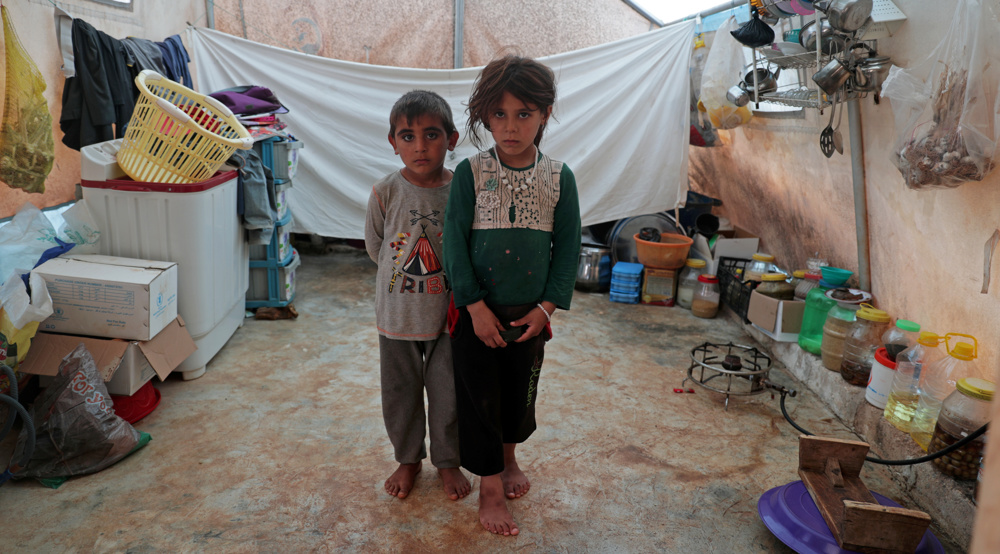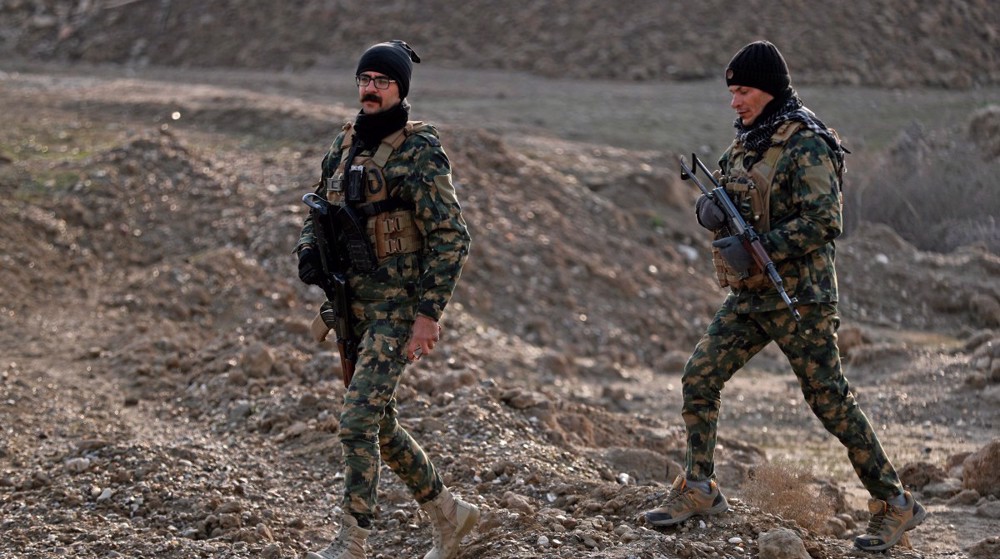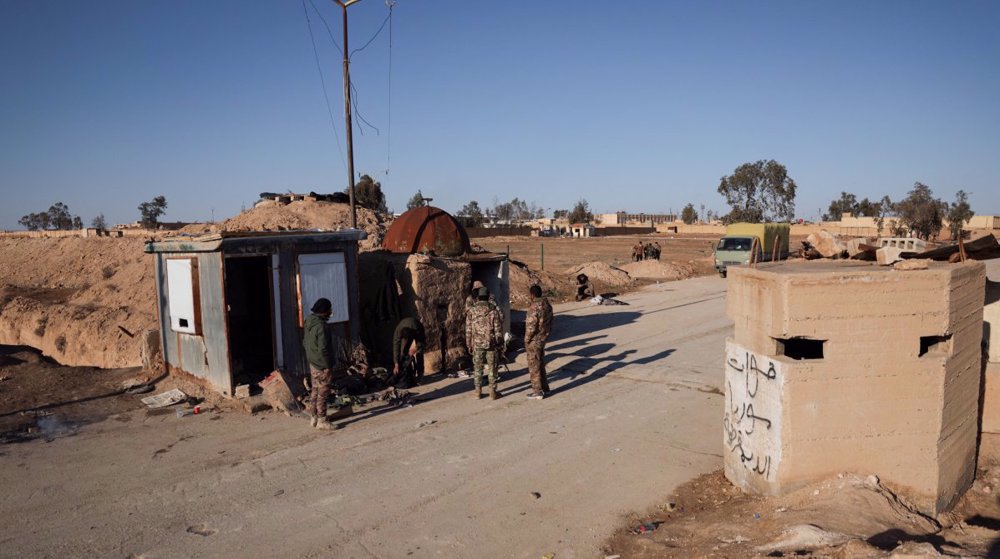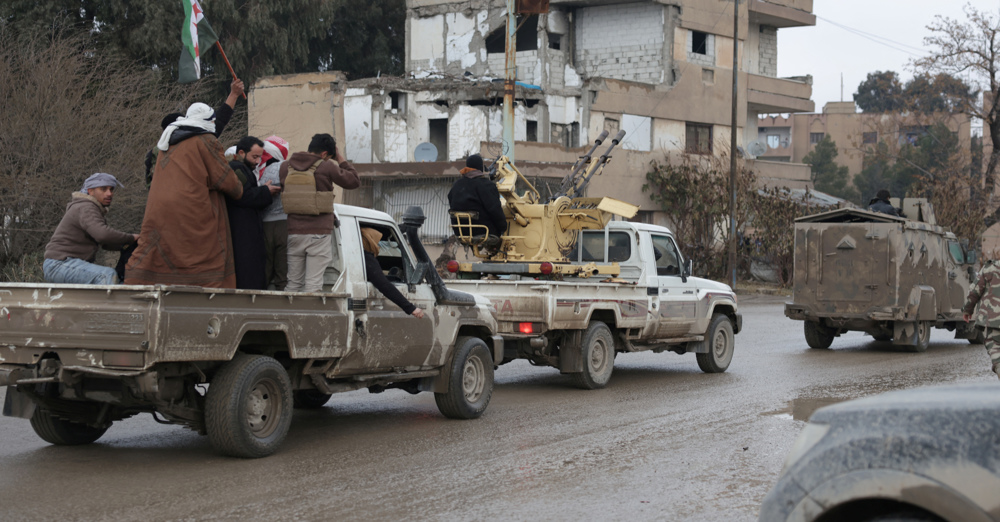Russia to propose UNSC resolution on Syria aid delivery after veto
Moscow says it will propose a draft resolution at the UN Security Council to seek a six-month extension of a cross-border aid delivery mechanism for Syria through one checkpoint, after Russia and China vetoed a relevant resolution drafted based on an “outdated” format.
“The time has come to phase out this mechanism in order to replace it with humanitarian supplies that will be implemented in accordance with the principles outlined in UN General Assembly resolution 46/182,” Russia’s Permanent Representative to the UN Vassily Nebenzia said in a statement on Tuesday.
He added, “However, we are aware of the need to meet the humanitarian needs of all Syrians. We will present our draft resolution, which implies a six-month extension of the mechanism, while limiting the number of existing checkpoints to one at the Bab al-Hawa checkpoint on the Turkish border.”
Earlier in the day, Russia and China vetoed a UN Security Council resolution drafted by Germany and Belgium that would maintain two border crossing points from Turkey — namely Bab al-Salam and Bab al-Hawa — to deliver humanitarian aid to Syria for a year.
Moscow had said earlier that it expected the UN and Damascus to work out alternative routes for aid delivery at the request and with the permission of the recipient state, while respecting Syria’s territorial integrity.
Nebenzia urged “partners in the Council and other UN member states not to politicize the humanitarian dossier, and to support instead our draft resolution, which will continue to provide humanitarian assistance to the people of Idlib,” a northwestern Syrian province, which is currently the last major militant stronghold in the Arab country.
The mechanism for cross-border assistance was established in July 2014, when the Security Council started to authorize cross-border humanitarian aid for Syria with periodic extensions. The latest extension will expire on Friday.
Nebenzia further argued in the statement that the aid mechanism is outdated and needs to be replaced with a new one given the fast-changing developments on the ground in Syria.
Over the past six years, “the territory beyond the control of the Syrian government has been significantly reduced,” said the statement, referring to the Syrian army’s success in reversing the militant groups’ territorial gains across the Arab country thanks to Russian and Iranian assistance.
China’s UN Ambassador Zhang Jun also defended the veto, blaming the unilateral sanctions imposed by the US and the European Union against Syria for the deteriorating humanitarian situation in the war-torn country.
Zhang expressed hope that “we will find a way out and narrow our differences.”
Moreover, UN Secretary-General Antonio Guterres said cross-border operations in northwest Syria “continued at record levels in response to the catastrophic deterioration of the humanitarian situation that occurred when almost 1 million civilians were displaced between December 2019 and March 2020.”
The UN chief noted in his latest report to the Security Council circulated on Tuesday that the UN World Food Program delivered food to 1.3 million people in April and more than 1.3 million in May through the two border crossings.
The report added that the UN World Health Organization had also delivered over 420,000 emergency health kits and essential medicines to the northwestern parts of Syria in May.
“The cross border crossings are vital to the well being of the civilians in northwest Syria. And we very much hope that these will be extended. Lives depend on it,” UN spokesman Stephane Dujarric said.
Guterres said despite increasing quantities of assistance reaching northeast Syria, “medical supplies from those deliveries did not reach the majority of medical facilities that had previously depended on the cross-border delivery of supplies.”
US-sponsored and Kurdish-led members of the so-called Syrian Democratic Forces (SDF) control most of oil-rich northeast Syria.
Security conditions are reportedly deteriorating in the areas controlled by the SDF in Hasakah and Dayr al-Zawr provinces amid ongoing raids and arrests of civilians by the US-backed militants.
Prior to the vote on Tuesday, Russian Foreign Minister Sergei Lavrov and his German counterpart Heiko Maas discussed the prospects of the cross-border mechanism over the phone.
They discussed “the vital need to provide humanitarian assistance to all Syrians throughout the country without politicization, discrimination or preconditions,” the Russian Foreign Ministry said in a statement.
Lavrov also underscored that all deliveries of humanitarian aid to Syria should be coordinated with the Damascus government.
Over 2,000 Britons served in Israeli military during Gaza genocide: Report
Houthi: Iranian, Yemeni revolutions inspire Islamic nation in face of enemy plots
Iran defeating sanctions for decades since Islamic Revolution victory
AIPAC faces challenge as new PAC seeks to end US backing of Israel
VIDEO | Press TV's news headlines
Iran president hails ‘exceptional’ turnout in Islamic Revolution anniversary rallies
VIDEO | Pro-Palestine protesters rally in Melbourne on final day of Israeli president's Australia trip
Gaza genocide's death toll may exceed 200,000: Report











 This makes it easy to access the Press TV website
This makes it easy to access the Press TV website